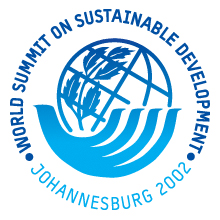Earth Observation Education and Training
Description
Description
The partnership strategy for Earth Observation Education and Training is the establishment of an effective coordination and partnership mechanism among CEOS agencies and institutions offering education and training around the world. The key objective is to facilitate activities that substantially enhance international. education and training in Earth observation techniques, data analysis, interpretation, use and application in support of the objectives of Agenda 21.
The partnership will: Allow space agencies, education and training providers, UN agencies and other entities to coordinate activities for specific education and training programmes and to exchange experiences and information; Provide opportunities for CEOS agencies, UNEP, UNOOSA, and others to network with each other, as well as with educational and training institutions; Provide for the timely integration and refresh of Earth observation data, information and techniques into education and training programmes; Provide an opportunity to agencies to disseminate materials, data, information, experts and guidance, as appropriate, for improving Earth observation training and education around the world; Promote a growing cadre of specialists in Earth observation who will address the growing environmental questions facing the world and who will develop expanded practical applications of Earth observation data and information world wide; Enable better and more far-reaching outreach to the larger international community and general public; Underscore the relevance of Earth observation for formulating policy and for addressing environmental and sustainable development issues at local, national, regional and global levels as well as for addressing scientific questions of relevance.
The partnership will: Allow space agencies, education and training providers, UN agencies and other entities to coordinate activities for specific education and training programmes and to exchange experiences and information; Provide opportunities for CEOS agencies, UNEP, UNOOSA, and others to network with each other, as well as with educational and training institutions; Provide for the timely integration and refresh of Earth observation data, information and techniques into education and training programmes; Provide an opportunity to agencies to disseminate materials, data, information, experts and guidance, as appropriate, for improving Earth observation training and education around the world; Promote a growing cadre of specialists in Earth observation who will address the growing environmental questions facing the world and who will develop expanded practical applications of Earth observation data and information world wide; Enable better and more far-reaching outreach to the larger international community and general public; Underscore the relevance of Earth observation for formulating policy and for addressing environmental and sustainable development issues at local, national, regional and global levels as well as for addressing scientific questions of relevance.
Partners
UN System:
United Nations Office for Outer Space Affairs (UNOOSA) (Austria)
Other intergovernmental organizations:
European Space Agency (ESA) (France)
CEOS Working Group on Education and Training (Canada)
United Nations Office for Outer Space Affairs (UNOOSA) (Austria)
Other intergovernmental organizations:
European Space Agency (ESA) (France)
CEOS Working Group on Education and Training (Canada)
SDGS & Targets
N/A
SDG 14 targets covered
Deliverables & Timeline
N/A
Resources mobilized
N/A
Partnership Progress
No progress reports have been submitted.
Please sign in and click here to submit one.
False
Feedback
Action Network


This initiative does not yet fulfil the SMART criteria.
Timeline
01 January 1970 (start date)
31 December 2022 (date of completion)
Entity
N/A
Goals
N/A
More information
Countries
N/A
